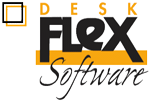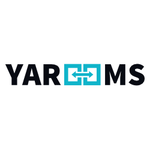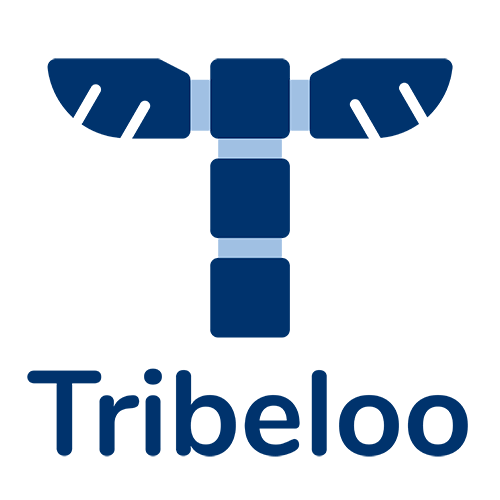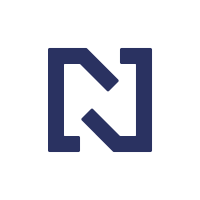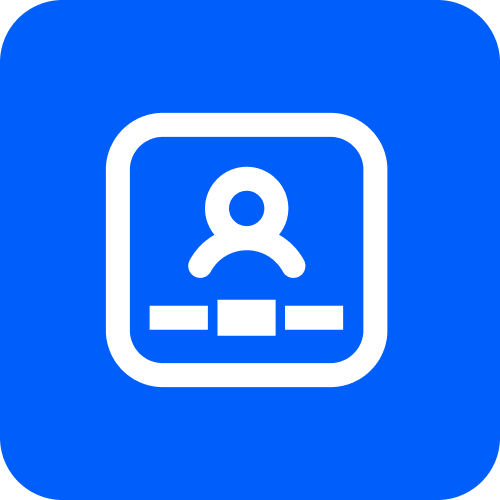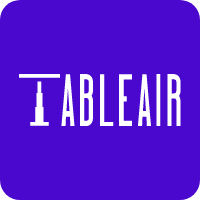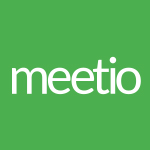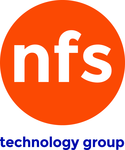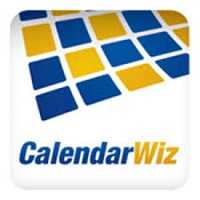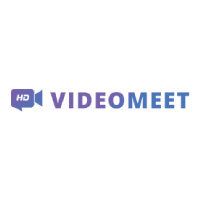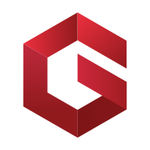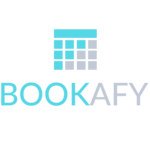Yes, meeting room booking solutions are often intended to work across a variety of devices and platforms. This means that meeting rooms can be accessed and booked using desktop computers, laptops, tablets, and smartphones, independent of operating system. This provides increased flexibility and convenience, allowing individuals or teams to reserve meeting spaces on the road with no restrictions.
List of 20 Best Meeting Room Booking System
DeskFlex is a leading facilities management solution that seamlessly integrates with MS Outlook and Exchange, making it tool for efficiently scheduling rooms and workstations. With its user-friendly interface and innovative features such as touchscre...Read More DeskFlex
YArooms is a workplace management solution that streamlines desk and meeting room bookings, tracks carbon footprint, and enables hybrid work models. Its intuitive interface enhances productivity, optimizes space usage, and promotes sustainability. Fr...Read More YArooms
Robin Powered - the ideal solution for effective management of meeting rooms. With features like real-time scheduling and digital signage, Robin simplifies the process of booking and arranging meetings. Stay updated on office space usage with the int...Read More Robin Powered
AgilQuest is a versatile workplace solution designed to streamline meeting room reservations, track workspace usage, and effectively manage office seating. With a reliable platform accessible on any mobile device, our software offers convenience for...Read More AgilQuest
Deskfound solution for stress-free desk booking and team connectivity in the workplace. Our platform seamlessly integrates with popular programs like Slack and Google, making it easy to reserve desks, meeting rooms, parking spots, and even schedule r...Read More Deskfound
Tribeloo - the perfect desk and meeting room booking solution designed for agile teams in the modern workplace. Effortlessly manage scheduling conflicts and promote collaboration within your team with our advanced features. Visit our website to disco...Read More Tribeloo
MLAI Meeting Room Booking is a cloud-based solution for reserving conference rooms. Our platform offers convenient access for employees to easily book and cancel meeting rooms. The reserved rooms meeting details are clearly displayed for everyones co...Read More MLAI Meeting Room Booking
DoorDesk, the premier visitor management solution for your establishment. With its intuitive interface, affordable rates, and advanced capabilities including visitor monitoring, pre-registration, and instant alerts, DoorDesk streamlines and safeguard...Read More DoorDesk
Nspace solution for transforming the hybrid workplace. Boasting a client list of renowned companies such as BDO, United Way, and Staples, Nspace offers a comprehensive platform for desk and space reservation, as well as visitor reception. With simpli...Read More Nspace
Welcome to 500Conference is a AI-powered video conferencing tool that revolutionizes collaboration and connectivity. Our secure virtual platform enables you to effortlessly share screens, chat in real-time, record meetings, and exchange files from an...Read More 500Conference
TableAir Meeting Room Booking, a state-of-the-art solution for effortless management of your meeting room reservations. With its user-friendly web and mobile app, you can easily modify booking times, invite participants, and even locate the room on t...Read More TableAir Meeting Room Booking
Meetio Room - the premier solution for optimizing workplace productivity. With its intuitive interface and comprehensive work analytics, it is an indispensable resource for any organization. Streamlining administration and providing dependable assist...Read More Meetio Room
Rendezvous NFS, your go-to solution for improving employee experience in the workplace. This advanced tool simplifies the process of booking meeting rooms and desks, monitors space usage, and efficiently manages visitors. With seamless integration wi...Read More Rendezvous NFS
CalendarWiz is a scheduling software perfect for businesses, schools, and nonprofits. Its powerful features, such as shared calendars, room reservations, and event suggestions, make event coordination and team management a breeze. Easily embed it int...Read More CalendarWiz
iOFFICE solution for maintenance managers. With its powerful facility management software, iOFFICE offers comprehensive support for all maintenance needs. From efficient contractor sourcing to accurate task management, iOFFICE streamlines the entire...Read More iOFFICE
VideoMeet is a high-quality video conferencing software that takes your online meetings, webinars, and conferences to the next level. Its user-friendly interface and advanced audio and visual features make communication smooth and seamless, whether i...Read More Videomeet
Joan is a web-based solution for hassle-free meeting room booking. Our secure platform allows for quick and easy reservations with real-time previews. Trusted by numerous industry awards, Joan is the preferred choice for optimized scheduling. Give yo...Read More Joan
Get a Room is a conference room scheduling solution. Our innovative software offers advanced features, including conflict resolution, customizable permissions, and Stripe integration for seamless external bookings. With digital signage support and fu...Read More Get a Room
Skedda is a scheduling solution that simplifies your entire booking process. With its easy-to-use system, you can customize and automate your schedule management, freeing up your time for more important tasks. Say goodbye to administrative headaches...Read More Skedda
Bookafy scheduling software streamlines your daily appointments and scheduling tasks with convenient features such as meeting management, confirmation, reminder sending, and online payment processing. With support for over 30 languages, it caters to...Read More Bookafy
Learn More About Meeting Room Booking System
- What Is Meeting Room Booking System?
- What Are The Recent Trends In Meeting Room Booking System?
- Benefits Of Using Meeting Room Booking System
- Important Factors To Consider While Purchasing Meeting Room Booking System?
- What Are The Key Features To Look For In Meeting Room Booking System?
- Why Do Businesses Need Meeting Room Booking System?
- How Much Time Is Required To Implement Meeting Room Booking System?
- What Is The Level Of Customization Available In Meeting Room Booking System?
- Which Industries Can Benefit The Most From Meeting Room Booking System?
- Conclusion
What Is Meeting Room Booking System?
A Meeting Room Booking System is a program or online platform that makes it easier to reserve and manage meeting rooms in the workplace. It enables users to quickly book, schedule, and track meeting room utilization, resulting in more efficient use of space and resources within an organization or institution. This system often includes a user-friendly calendar interface, real-time room availability, and the flexibility to configure settings for various meeting kinds.
It may also have additional capabilities like as calendar and email integration, the ability to schedule recurring meetings, and the ability to invite and manage attendees. One of the primary advantages of a Meeting Room Booking System is its ability to automate the process of scheduling meeting rooms, eliminating the need for back-and-forth communication and potential double reservations.
This not only saves time and minimizes confusion, but it also increases overall productivity by ensuring that meetings begin on schedule and with all relevant resources and equipment ready. Furthermore, a Meeting Room Booking System provides greater visibility and organization than old paper-based systems or manual booking methods. It enables simple tracking of room utilization, offering significant information for better resource management and decision-making.
What Are The Recent Trends In Meeting Room Booking System?
In recent years, there has been a noticeable growth in the use of technology to manage and book meeting rooms. This has resulted in several improvements and trends in the meeting room booking system sector.
Let's look at some of the most recent trends in meeting room booking systems that purchasers should consider when selecting a solution for their company.
1. Online Booking And Scheduling: One of the most significant shifts is the shift to online booking and scheduling. With the growing usage of digital platforms, businesses are moving away from traditional booking methods such as phone calls or emails. Online booking systems enable users to reserve conference spaces in real time, making the process more effective and easy.
2. Integration & Automation: Integration and automation are increasingly important aspects in meeting room booking systems. These systems can now work smoothly with other company tools including calendars, email, and project management software. This enables automatic changes and notifications, decreasing the possibility of double bookings or missed reservations.
3. Mobile Accessibility: With the rise of remote and flexible working, there is a greater need for mobile accessibility in meeting room booking systems. Many providers now provide mobile apps or web-based solutions that enable users to book and manage meeting rooms while on the go, making it easier for teams to interact and organize meetings from anywhere.
4. Real-Time Data And Analytics: Meeting room booking systems now support real-time data and analytics. This information can include room utilization, booking patterns, and no-show rates, allowing firms to maximize meeting room usage and make data-driven decisions.
5. Resource Management: In addition to meeting room reservations, many systems now include resource management capabilities. This enables organizations to manage and track meeting-related equipment, catering, and other resources, providing a smooth and seamless experience for attendees. With these current advancements influencing the conference room booking system sector, consumers must thoroughly examine and compare various options before making a purchase. Businesses that evaluate these elements might select a system that matches their individual requirements while also improving their entire meeting room booking process.
Benefits Of Using Meeting Room Booking System
A meeting room booking system is a piece of internet software that helps organizations manage their meeting spaces more efficiently. By automating the process of reserving, scheduling, and tracking meeting rooms, these systems provide a number of advantages that can lead to increased productivity, cost savings, and improved workplace collaboration.
1. Improves Meeting Room Booking Process: One of the most significant advantages of using a meeting room booking system is that it streamlines and automates the entire process of scheduling a meeting space. With a few clicks, employees can simply rent a space that meets their unique needs, such as availability, capacity, equipment, and amenities. This eliminates the time-consuming and error-prone manual booking process, freeing up users to focus on more vital activities.
2. Improve Meeting Space Utilization: Unoccupied conference rooms are a substantial waste of resources for organizations. A conference room booking system provides real-time visibility into room availability, making it easier for employees to discover and reserve the appropriate space for their needs. Additionally, these systems can evaluate data on room usage, assisting businesses in optimizing their meeting space and ensuring that it is being used to its full potential.
3. Prevents Double Booking And Conflicts: Manual booking methods frequently result in double bookings, which cause significant irritation for employees and unnecessary delays. Meeting room booking systems prevent multiple bookings by providing a consolidated and up-to-date view of all rooms and reservations. It also avoids disputes by telling users when a time slot has already been reserved by someone else.
4. Promotes Communication And Collaboration: Meeting room booking systems promote workplace communication and cooperation by providing employees with a single platform for sharing and collaborating on meeting details. This includes information like meeting agendas, attendee lists, and room setup needs. Employees may communicate more efficiently and minimize miscommunication by having all of their information in one location.
5. Cost Savings: Inefficient usage of meeting rooms can lead to excessive costs for businesses. Businesses that efficiently manage and optimize meeting space utilization can save time and resources, lowering overhead costs. Meeting room booking systems can also help to avoid expensive last-minute bookings for external locations by minimizing double bookings and conflicts.
Important Factors To Consider While Purchasing Meeting Room Booking System?
When choosing a meeting room booking system, there are a few important elements to consider. These elements will eventually influence the efficiency and efficacy of your meetings, so select a solution that matches your individual requirements.
Here are some of the most significant considerations when purchasing a meeting room booking system:
1. Simplicity Of Use: The meeting room booking system's simplicity of use is an important feature to consider. Because the goal of this system is to streamline the booking process, it must be user-friendly and simple to navigate. Look for a system with a straightforward and intuitive interface, allowing staff to arrange and manage meetings without difficulty.
2. Integration With Existing Systems: Your meeting room booking system should work easily with your existing calendars, email clients, and other necessary applications. This ensures a seamless flow of information and prevents conflicts or double bookings.
3. Customization Options: When it comes to organizing meeting places, each firm has unique requirements. Look for a system with customization choices so you may adapt the features and settings to your individual needs. This ensures that the solution is tailored to your organization's specific requirements.
4. Accessibility: Given the development of remote and hybrid work, it is critical to select a meeting room booking system that is accessible to both on-site and distant personnel. This can incorporate features like mobile booking, virtual conference room access, and remote management capabilities.
5. Reports And Analytics: Tracking and monitoring meeting room usage is critical for optimizing space and resources. Look for a system that includes reporting and analytics capabilities, such as occupancy rates, peak booking hours, and user information. This will allow you to make informed judgments about future enhancements.
6. Cost And Maintenance: As with any purchase, it is critical to evaluate the cost and upkeep of the meeting room booking system. Look for a system that has a suitable price point and does not require regular updates or maintenance.
7. Customer Support: In the event of any technical difficulties or concerns, it is critical to have dependable customer help from the meeting room booking system supplier. Look for a system that provides 24-hour assistance and has a solid reputation for responding quickly and giving effective answers.
What Are The Key Features To Look For In Meeting Room Booking System?
When selecting a Meeting Room Booking System, it is critical to evaluate the major characteristics that will best meet your company's requirements. With the growing demand for effective and structured meeting room management, the market is saturated with options, making it difficult to choose the best one.
To help you make an informed decision, below are the main elements to look for in a Meeting Room Booking System:
1. User-Friendly Interface: The most important factor to evaluate is the system's ease of use. A user-friendly design guarantees that all team members may quickly access and use the system without needing considerable training.
2. Real-Time Availability: Users should be able to see the real-time availability of meeting rooms. This feature prevents meetings from being double-booked, saving time and effort in finding an available room.
3. Online Booking: With an online booking option, users may book a conference room from anywhere and at any time. This is especially beneficial for remote teams or individuals working from many places.
4. Customizable Room Details: Each meeting requires a unique setup and equipment. As a result, the system should allow the user to tailor room characteristics like capacity, layout, and available equipment to each meeting's individual needs.
5. Calendar Integration: To minimize having to move between calendars, the system should be integrated with common calendars like Google Calendar, Outlook, or iCal. This allows customers to see all of their planned meetings in one spot.
6. Multi-Lingual Support: In today's diversified and international company world, the meeting room booking system must provide multi-lingual support. It ensures that the system is accessible to all team members, regardless of language.
7. Reporting and Analytics: The system should have reporting and analytics functions to track meeting room utilization, identify peak booking times, and assess the overall efficiency of meeting room management.
8. Mobile Compatibility: In today's fast-paced business environment, having a mobile-friendly meeting room booking system is critical. It enables customers to book rooms and manage meetings on the go using their cellphones.
9. Multiple Platform Support: To accommodate different user preferences, the system should support a variety of platforms, including desktop, laptop, and mobile.
10. Interaction With Third-Party Apps: Finally, the system should include interaction with third-party apps, such as project management tools or team communication platforms, to help streamline and improve the meeting experience. Before you invest in a Meeting Room Booking System, make sure it includes these critical features to help your team manage meeting rooms and increase productivity.
Why Do Businesses Need Meeting Room Booking System?
Businesses want a dependable and effective meeting room booking system to simplify meeting scheduling and increase overall efficiency. This software can considerably help enterprises by offering a centralized platform for reserving and managing meeting rooms, reducing the need for manual booking processes and preventing scheduling conflicts.
One of the primary reasons organizations use a meeting room booking system is to save time and improve efficiency. Employees can use this system to quickly check the availability of meeting rooms and make reservations, as opposed to the time-consuming practice of manual booking. This also enables them to rapidly discover and reserve available rooms, reducing delays and ensuring that meetings begin on time.
Furthermore, a meeting room booking system enables for more efficient use of meeting spaces. Businesses can maximize their resources by monitoring meeting room utilization and identifying underutilized locations. This can save money and lessen the demand for larger office premises, resulting in overall cost reductions. Another significant advantage of this system is the elimination of duplicate bookings and conflicts.
Employees can avoid double-booking by using a smart calendar that displays all reservations. This considerably decreases the chance of scheduling conflicts while also ensuring that meeting rooms are used in the most effective and structured manner. A conference room booking system also allows for greater booking flexibility. Employees can quickly amend or cancel their reservations, while administrators can establish restrictions or prioritize bookings depending on organizational requirements. This guarantees that any changes in meeting arrangements are handled immediately and smoothly.
Finally, a meeting room booking system provides real-time data and insights into meeting room usage, allowing organizations to monitor their meeting room spending and make informed decisions about future investments. It also improves communication and collaboration among team members by allowing them to immediately see forthcoming meetings and plan accordingly.
How Much Time Is Required To Implement Meeting Room Booking System?
The deployment time for a meeting room booking system varies according to the type of system and the size of your firm. A conference room booking system can often take between a few weeks and a few months to completely develop. The first stage in the implementation process is identifying your organization's specific needs and requirements. This involves determining the number of meeting rooms, their capacities, and any special features or integrations that you may require.
Next, select a meeting room booking system that is appropriate for your needs. This can include researching several systems, comparing features and pricing, and possibly scheduling demos or trials. Once you've decided on a system, the actual implementation phase can begin. This usually includes creating user accounts, customizing settings and permissions, and integrating the system with any existing calendars or scheduling applications.
The time it takes to implement the system is also determined by the level of customization necessary. If your firm has distinct procedures or workflows, more effort may be required to customize the system to meet your requirements. Furthermore, the level of training and adoption within your organization can influence the implementation timeline.
If your team is familiar with similar systems or has a high level of technical knowledge, they may need less training and be able to quickly embrace the new system. However, if your team is unfamiliar with such technology, they may want more time and support to get up and running. Overall, the deployment of a meeting room booking system necessitates careful preparation and collaboration among stakeholders. You can ensure a smooth and effective deployment process by recognizing your organization's specific needs, choosing an appropriate system, and offering adequate training.
What Is The Level Of Customization Available In Meeting Room Booking System?
Meeting room booking systems allow varying levels of flexibility based on the software supplier and the demands of the organization. Generally, these systems are intended to fulfill the specific needs of various enterprises and industries.
When selecting a meeting room booking system, consider the following major characteristics of customization:
1. Branding And User Interface: Most meeting room booking systems allow you to customize the user interface to match your organization's branding and design elements. This involves using company logos, color palettes, and typefaces to ensure a consistent and professional appearance.
2. Configurable Elements: Most meeting room booking systems allow you to customize elements like room layout, time slots, booking limitations, and user rights. This level of customization enables more efficient management of meeting places and better resource allocation.
3. Integration With Existing Systems: Many modern meeting room booking systems integrate with other systems like calendars, email, and room displays. This provides a smooth and seamless experience for both staff and visitors.
4. Reporting And Analytics: Customizing reporting and analytics is critical for firms looking to acquire insights into meeting room usage and optimize their resources accordingly. Meeting room booking systems include customisable reports and dashboards for tracking and analyzing data including room occupancy, no-show rates, and booking patterns.
5. Mobile And Web Accessibility: With the growing trend of remote work and worldwide teams, meeting room booking systems provide customisation to assure mobile and web accessibility. This feature enables meeting scheduling and administration at any time and from any location, resulting in a more efficient and collaborative work environment.
Which Industries Can Benefit The Most From Meeting Room Booking System?
Meeting Room Booking Systems are becoming a crucial tool for businesses across industries, helping to improve efficiency and streamline the booking process. From startups to huge multinational enterprises, this system meets the needs of all industries.
However, some sectors can reap major benefits from employing a Meeting Room Booking System, making it a good investment for their business.
1. Corporate Offices: In the fast-paced corporate world, time is valuable, and squandering it on inefficient booking procedures might result in missed chances. Meeting Room Booking Systems help corporate teams to efficiently book and manage meetings, resulting in increased productivity. Companies can avoid multiple bookings and improve team communication by using features such as automatic availability checking and real-time updates.
2. Co-Working Spaces: As the need for flexible workspaces grows, co-working spaces are discovering Meeting Room Booking Systems to be a beneficial resource. These systems offer members a streamlined booking experience, allowing them to schedule meeting spaces directly from their desks. Furthermore, with facilities such as food and room customisation, co-working spaces may provide a premium experience to their clientele.
3. Educational Establishments: Meeting Room Booking Systems can also benefit educational organizations like universities and schools. Meeting coordination and scheduling can be difficult when there are several departments and faculty members involved. A booking system makes this process easier by providing a single platform for managing meeting rooms, equipment, and resources.
4. Healthcare Facilities: In the healthcare industry, time and resource management are critical to providing effective patient care. Meeting Room Booking Systems can help hospitals and clinics make better use of their meeting rooms, allowing them to arrange staff and patient meetings more effectively. This leads to enhanced coordination and patient outcomes.
5. Event Management Companies: Event management entails juggling multiple responsibilities and resources, therefore a Meeting Room Booking System is a crucial tool for event planners. It enables them to reserve locations, schedule meetings with clients, and manage workers and equipment from a single platform. This not only saves time, but also ensures the event's success.
6. Non-Profit Organizations: For non-profit organizations fighting for a cause, every minute is valuable. A Meeting Room Booking System can help them manage their meetings, activities, and volunteers more efficiently, freeing them time to focus on their mission. They may also use features like notifications and reminders to keep everyone on the same page, resulting in improved collaboration and results.
Conclusion
Finally, investing in a meeting room booking system might provide significant benefits to your firm. These systems can boost your meetings' productivity and success by reducing the booking process, enhancing efficiency, and improving cooperation. When considering acquiring a meeting room booking system, you should carefully analyze your individual requirements and budget.
Research various systems and their features, read other buyers' opinions, and think about the deployment and training process for your firm. Furthermore, make sure to select a system that is user-friendly and compatible with your current technology. Keep in mind the system's scalability as your firm grows, as well as the company's degree of customer support.
Overall, a well-chosen meeting room booking system can help you simplify and improve your meeting scheduling process while also contributing to a more organized and productive workplace. We hope this buyer's guide has provided you with useful information and enabled you to make an informed selection.
Meeting Room Booking System FAQ's
Can Meeting Room Booking System Be Accessed Across Multiple Devices And Platforms?
Is Meeting Room Booking System Future-Proof And Adaptable To Emerging Technologies Like AI, Blockchain Or IoT?
Yes, a Meeting Room Booking System is future-proof and adaptable to upcoming technologies like as artificial intelligence, blockchain, and Internet of Things. Most modern systems are designed to be adaptable and interoperable with different technologies to improve the user experience.
AI may offer intelligent accommodation recommendations based on customer preferences, while blockchain ensures secure bookings. IoT can also be utilized to automate hotel check-ins and monitor usage. These technologies will undoubtedly increase the functionality and efficiency of meeting room booking systems in the future.
Is There A Free Trial Offered To Assess Meeting Room Booking System Before Committing?
Yes, most meeting room booking platforms provide a free trial period during which you can evaluate their features and functionality before committing. This allows potential users to try the system and determine whether it fulfills their individual needs and requirements. It also allows users to become comfortable with the platform and its interface before making an informed selection. Take advantage of any available free trial offers to identify the ideal solution for your company's needs.
Does Meeting Room Booking System Offer Data Security Features And Meet Regulatory Compliance Standards?
Yes, most meeting room booking systems have data security safeguards and are designed to meet regulatory requirements. They protect sensitive information with industry-standard encryption and secure servers. Furthermore, these systems frequently include built-in access restrictions to restrict who can schedule or view meeting room information. They also follow regulations like GDPR, HIPAA, and PCI-DSS to provide thorough data protection.
Can Meeting Room Booking System Integrate Seamlessly With Existing Tools And Platforms?
Yes, most current meeting room booking systems integrate seamlessly with existing tools and platforms. This enables for a more seamless and efficient booking procedure without the need to switch between several systems.
Users can view and book available meeting spaces, issue invitations, and manage schedules all in one place thanks to integrations with calendars, email, and project management software. This increases efficiency while eliminating the possibility of double booking or misinterpretation.

